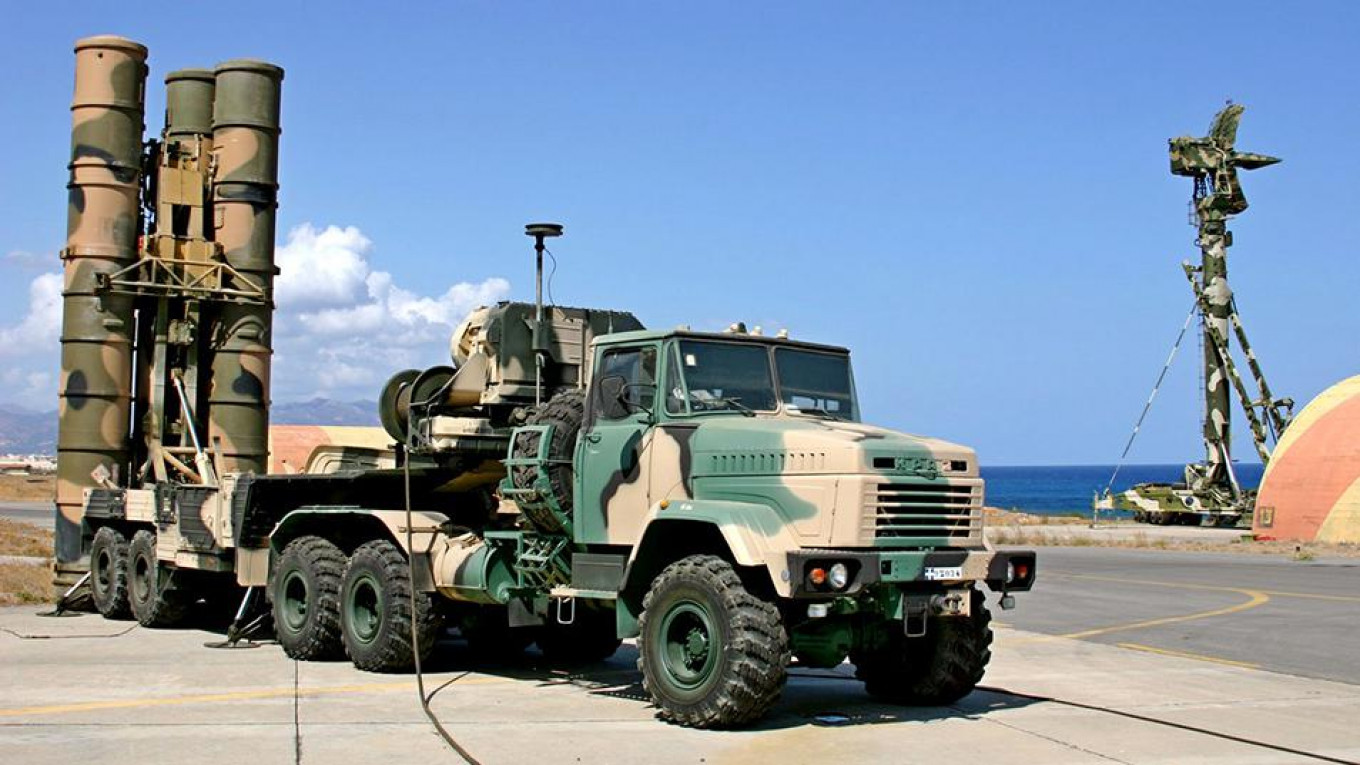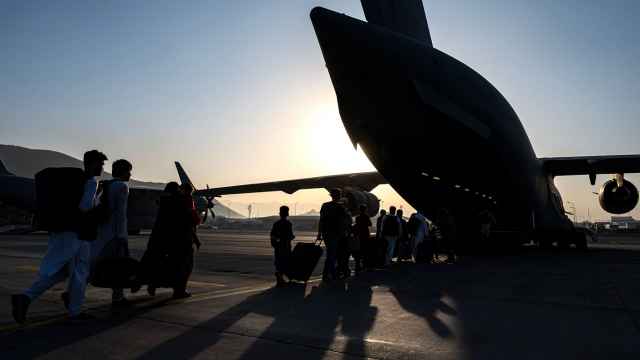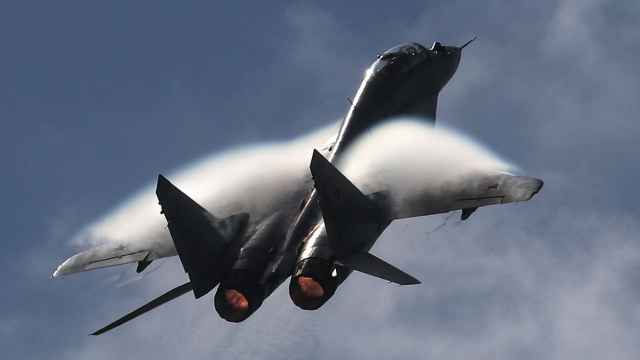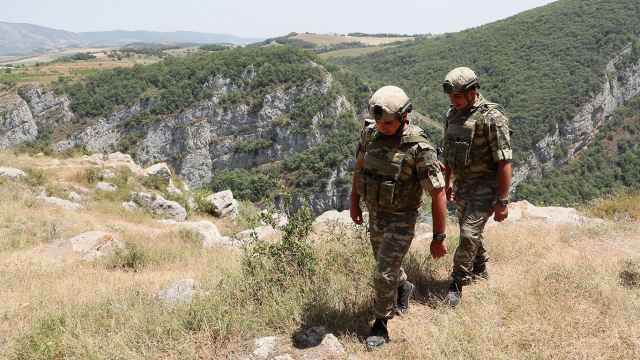In the aftermath of the most recent chemical attack in Syria, it looks as if Russia has decided to finally make good on an arms deal brokered nearly a decade ago.
After the Syrian regime reportedly launched its most recent chemical attack in Douma in early April, the United States, Britain and France hit back with a series of airstrikes targeting Syrian President Bashar Assad’s chemical weapons facilities.
In the wake of the strikes, Russia came rallying to Assad’s side by recommitting to delivering the S-300 missile system in a deal brokered between Moscow and Damascus in 2010. The agreement was scrapped at the time after Israel, another of Russia's regional allies, voiced concerns that Syria could use the system to target Israel.
Russia’s decision now to go ahead with the deal could significantly complicate the situation in southern Syria. The new deployment could spark a military response from Israel and end with its direct confrontation with Iran.
But it also brings to light Moscow’s habit of using arms transfers to win influence with allies and leverage opponents.
Arms exports have always been part of Russia’s multi-faceted diplomacy in the Middle East, and they have proven to be an effective means of political messaging.
Moscow began using its defense industry as a tool for forging and cementing alliances as early as the Cold War. Back then, a host of Arab dictatorships, including Egypt, Iraq, Libya and Syria, depended on Soviet-produced arms for survival.
Soviet allies that often were struggling economically benefited from arms deals that came with loans, hefty discounts and no political agenda attached. Some of the Soviet clients in the Middle East embraced the Communist ideology and some didn’t. But that was never a problem for Moscow.
The bottom line for the Soviet Union was that its regional clients allowed it to counter American expansion in the Middle East and create a front away from its own borders.
It would be easy to question the effectiveness of the Soviet strategy of injecting loads of weapons in the Middle East as a way of projecting its influence in the region. But Russia’s dramatic re-emergence in the region in recent years goes to show just how much of its come-back actually depended on the regimes that were once Soviet clients.
The manipulation of arms exports to the Middle East to alter the behavior of its allies is something that Moscow mastered during the Cold War and still resorts to today. For instance, when the Syrian army occupied Lebanon in 1976, the Soviet Union suspended its military aid to Hafez Assad and reduced the number of its military advisors, making it clear to Damascus that it didn’t support the intervention.
Similarly, the 2007 deal to deliver S-300 air defense systems to Iran was shelved by Moscow in 2010 in compliance with UN sanctions. Then, during the final stages of negotiations on Iran’s nuclear program, Moscow announced its intention to resume the deal, which, arguably incentivized Tehran to accept the UN-brokered nuclear agreement.
To go alongside Russia’s re-emergence in the Middle East, Moscow needed a non-confrontational strategy that would allow it to look beyond its Cold War-era alliances. Arms diplomacy was the answer, allowing Russia to forge new partnerships and improve relations with governments that were traditionally seen as rivals.
Gulf monarchies, as well as Turkey, have come to realize that arms deals can help demonstrate the seriousness of their intention to bond with Moscow.
Riyadh and Ankara are both looking to purchase Russian S-400 air defense systems, which may create strong military-technical ties with Moscow. It is not a coincidence that the White House sees these moves as a threat to American interests in the Middle East.
While Russia’s new clients believe that the best way of altering Moscow’s foreign policy is by promising it a share of the regional arms market — and by extension the status of a regional influencer — the seriousness of these attempts is often questionable.
An increasing number of governments in the Middle East looking to buy Moscow’s support by promising lucrative arms deals, many of which end up being idle talk.
So what does the lifting of Russia’s self-imposed ban on the delivery of S-300 mean for power dynamics in the Middle East? The decision itself is unlikely to shift the balance of power in the region, which Moscow understands very well.
Even though Russia’s Foreign Ministry blamed the West’s airstrikes in Syria for the reversal in the Russian policy, it is first and foremost a signal to Israel.
Russia’s old-time ally is growing disillusioned with Moscow over its failure to recognize Iran and its proxies as an existential threat to Israel. The growing distrust means Netanyahu is no longer compelled to coordinate with Moscow, which doesn’t share his threat assessment in Syria.
If the Assad government ultimately gets its hands on the S-300, it will boost his security. But it will not deter Israel from carrying out strikes against what it says are Iran’s military bases inside Syria. The new weapons will present a challenge to Israel, but not one that is insurmountable, given Israel’s ability to overcome these systems.
The delivery of S-300 systems to the Assad government would be a message to Israel — as well as a demonstration — that Moscow is taking sides with Syrian, and by extension with Iran, on the issue of Israeli security, something that was unimaginable not so long ago.
Russia is moving to create new red lines in Syria, and its weapons serve as a tool of coercive diplomacy.
Yuri Barmin is a researcher on the Middle East and Russia's policy towards the region and an expert at the Russian International Affairs Council. The views and opinions expressed in opinion pieces do not necessarily reflect the position of The Moscow Times.
A Message from The Moscow Times:
Dear readers,
We are facing unprecedented challenges. Russia's Prosecutor General's Office has designated The Moscow Times as an "undesirable" organization, criminalizing our work and putting our staff at risk of prosecution. This follows our earlier unjust labeling as a "foreign agent."
These actions are direct attempts to silence independent journalism in Russia. The authorities claim our work "discredits the decisions of the Russian leadership." We see things differently: we strive to provide accurate, unbiased reporting on Russia.
We, the journalists of The Moscow Times, refuse to be silenced. But to continue our work, we need your help.
Your support, no matter how small, makes a world of difference. If you can, please support us monthly starting from just $2. It's quick to set up, and every contribution makes a significant impact.
By supporting The Moscow Times, you're defending open, independent journalism in the face of repression. Thank you for standing with us.
Remind me later.








